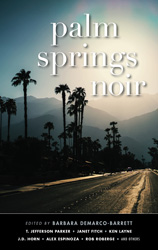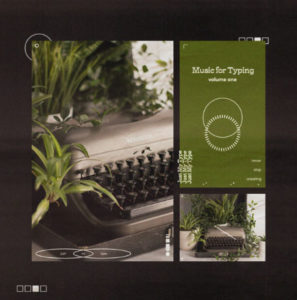Kevin Smoker, author of Bookmark Now: Writing in Unreaderly Times
, was on my show a couple of years ago talking about blogs and Web sites. He’ll be back on, on August 25. I recently asked him some questions:
BDB: What was the genesis for Bookmark Now: Writing in Unreaderly
Times?
KS: Complete frustration with how books and reading were portrayed online, in the media and the world at large. I was 26, in the wrong graduate program and looking for something to dedicate my passions to. I loved books, reading, contemporary authors and fiction and was eager to find others my age who felt the same way, who were as addicted to Salon, NPR and This American Life as I was. I think it was a Sunday afternoon when I was doing searches online for “contemporary authors,” “gen X. book lovers” or something like that and found a site called “Book Radio” (it’s no longer around). I clicked on it excitedly and was met with yet another sweater-clad, tea-party discussion of books as if being a reader was the same as being a Limoge Box Collector. I remember jumping out of my chair and yelling, “Books are not stuffed animals! They are sexy, they are fun, they are relevant, godamn it!”. I think it started there.
BDB: How did you go about choosing the essays/essayists included in the book?
KS: I had a dream list of authors before I began the project, some of whom came through and others who didn’t. Others I had known and admired for some time. A few were recommended to me by authors who had already committed. A few more were repped by the same agency as me.
BDB: I don’t have the book yet, so I’m speaking blindly, but from what I read about the book, it seems what you’re saying is that all the hubbub about people not reading as much is just plain wrong, that people are reading more than ever. This true?
KS: I don’t if people are reading more or not, but accepting that is the case, moaning about the evil effects of the Internet and television and that kids these days don’t have any appreciation for intellectual rigor is not the solution. It’s precisely this fear of cultural change that my grandparents laid into my parents about rock n’ roll, that their grandparents laid on the younger generation about jazz. And it makes us all look like ostriches with our heads in the sand.
That said, 90 percent of the non-readers would like to but give two reasons why they don’t: No time and they don’t know what is good. That these folks want to read but feel lost, intimidated, too busy to, is a giant vault of wasted potential for all us us who depend on readers for our survival. That includes me.
BDB: Was it an easy book to sell?
KS: Fairly. I think it took my agent about three months. I don’t know how that compares with other first-time authors.
BDB: Any discoveries along the way, things you learned by doing the book that surprised you?
KS: Editing an anthology requires more tack and diplomacy than this Jewish/Leo/eldest child was born with. But when you’re dealing with 25 writers with their own styles, temperaments, and creative processes, you learn to be gentle. I didn’t expect I would have to be but in retrospect I’m glad I did.
Second, I grew up real fast while on book tour this summer. I was pretty convinced of how glamorous and exciting it would be and kept saying “More! More!” to my publicist. I was completely unprepared for how exhausting it would feel visiting 10 cities in 8 weeks, in telling an events manager in Portland that it sure feels great to be in Seattle because I didn’t remember where I woke up that morning. That isn’t glamorous at all. The only way it feels even slightly manageable is to be as humble about the process as possible, to say that it is your job each evening to be of service to to your book, to those who publish and believe in you and to the readers who support you. I learned quickly that if my first thought each day was, “Give me what’s mine!”, I would spend the whole summer unappreciative of publishing a book. And really, how many first books do you get?
BDB: What are you reading right now?
KS: I just finished Bel Canto by Anne Patchett which I’ve been trying to get to for about two years, and Can’t Stop Won’t Stop by Jeff Change, an excellent political and cultural history of hip-hop music. Right now, I’m reading A Complicated Kindess by Mariam Toews, which was recommended to me while on tour, I May Not Get There With You, Michael Eric Dyson’s biography of Martin Luther King and Nathaniel West’s Day of the Locust for a classics book club I’m in.
BDB: I want to talk for a minute about blogs. When you last came on my show, you said it was never too early to create a web presence. Will you elaborate?
KS: Sure. for the generation of readers coming up now and pretty much all the ones afterward, they get most of their information online. So if you don’t represent yourself and your work in that space, to future readers it doesn’t exit. It’s also a generation raised on high levels of access to information about creative people (“Inside the Actor’s Studio,” DVD commentaries). So for any writer looking to have a long career, they have prepare for this inevitability. And that means having the most complete information about you and your work available and nicely organized on the Internet. Your page at Amazon or your publisher’s Web site is not enough because then someone else is controlling the information and can do with it as they see fit. Having your own Web site under its own domain name enables you not only to retain control of the essential information about you and your work but also lets your readers communicate with you and provides a place for their enthusiasm to land. What is your biggest fan to do if you don’t have a Web site other than wait 3 years for next book to come out? Have a Web site and they can sign up for your mailing list, get info about when you’ll be in their city, send their friends to it. It creates a fan culture around your work.
BDB: So creating a blog, and not a Web site, would be fine?
KS: A blog is a kind of Web site, one that is frequently updated with links and commentary in reverse chronological order. I don’t think it’s necessary for most authors to blog unless they have something to say that frequently. However some, like Gayle Brandeis, Nelson George and Danyel Smith just do it because they have fun blogging and they are interesting people. But the most important parts of an author’s Web site are the bio, book information, links to online booksellers, events calendar and a mailing list. A blog is nice but not essential.
BDB: Are there too many blogs?
KS: No. There is too little education about how to find the good ones.
BDB: What should I have asked you but didn’t?
KS: “What are you doing next?” I’m currently in the middle of the proposal for my second book which will be an oral history of ordinary people answering this question, “What Book Changed your Life?” and playing around with several article and radio ideas. I’m also looking forward to several weeks at home with my girlfriend, my cat and a stack of unread books.
Visit Kevin’s Web site
.



 Support Indie bookshops and this site by purchasing books through my BookShop
Support Indie bookshops and this site by purchasing books through my BookShop
